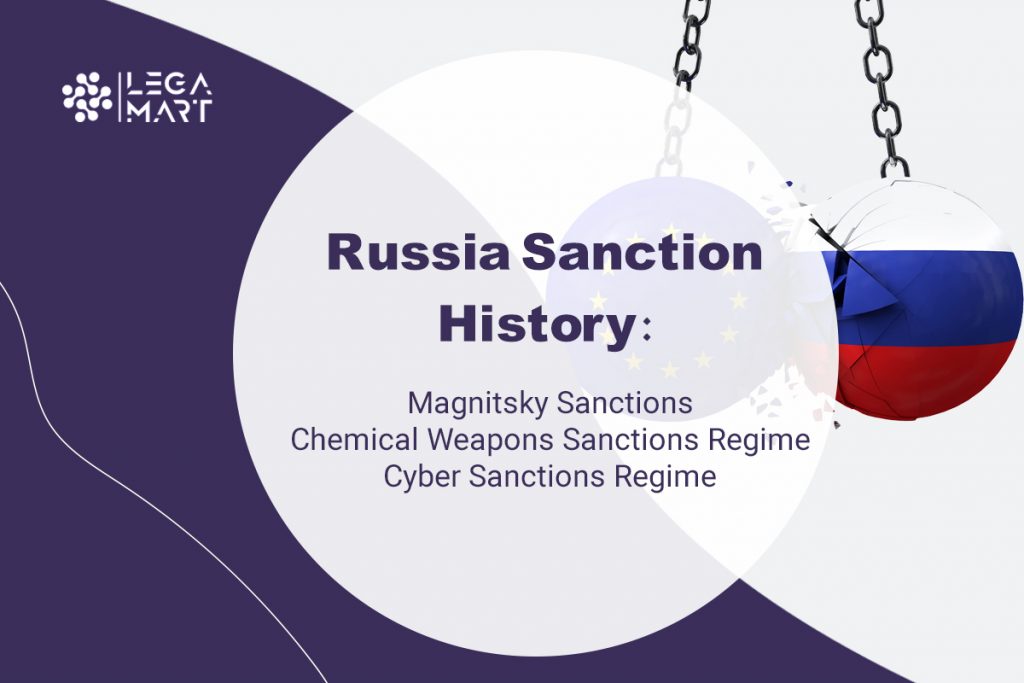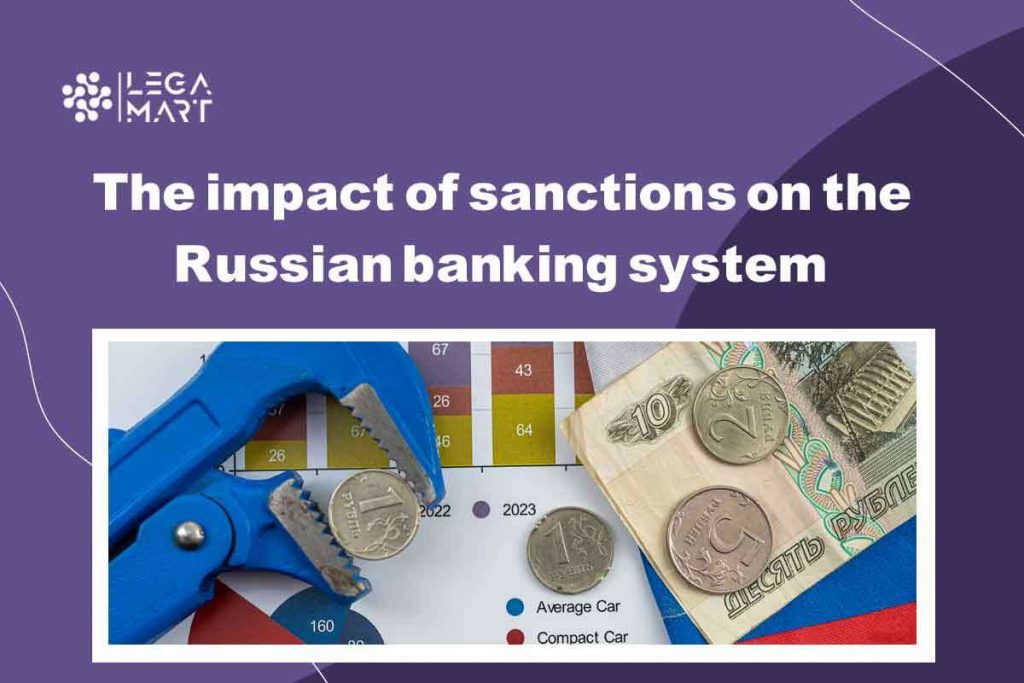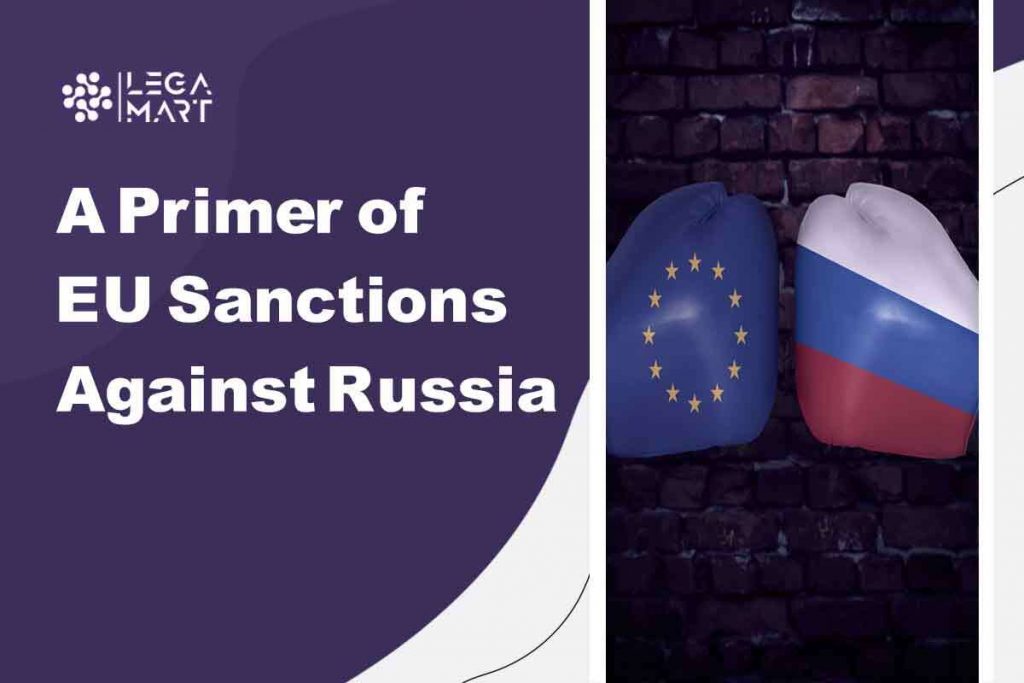Introduction
Sanctions are often considered an effective tool for foreign policy. These coercive techniques against the state, non-state entities or individuals threaten international peace and security. The United Kingdom (UK) is capable of imposing individual sanctions. However, it often coordinates with allies such as the European Union (EU) and the United States (US) to achieve maximum results, illustrating key aspects of both Cross-Border & International Law and Legal Practice & Specialization. Within international law, the United Nations (UN) sanctions are also imposed by the EU countries. Over the years, many countries have taken the help of sanctions to impose economic and financial pressures on an economy. While the current European Union sanctions against Russia might not be news to many, especially considering the aftereffects of the Russia-Ukraine war; however, many might be unaware that the European Union sanctions against Russia started way back in 2014. Even then, Russia’s involvement in the Ukraine crisis was the primary reason for these sanctions.
This article aims to provide a primer on EU sanctions against Russia due to the current conflict in the region and the Ukraine crisis.
Sanctions in Libya: Unintended Consequences From 2011
Russia Sanction History
The timeline of the Russian sanctions existed long before the 2022 Russia-Ukraine war. Before 2022, around 183 individuals and 53 entities were already a part of the EU financial sanctions against a financial institution under Russia’s sanctions regime. As part of this regime, the EU, United States, United Kingdom, and other western allies such as Canada. The sanctions were imposed against Russia due to the Russian invasion and annexation of Crimea (Eastern Ukraine) in 2014, along with the destabilization of such a move on Ukraine.
These sanctions included travel bans, asset freezes, preventing access to capital markets for Russia-owned financial institutions, etc. Additionally, sanctions were imposed on arms embargoes and trade restrictions, such as technology export to Russia. Eventually, the third set of sanctions also imposed bans on investment in and trade with Crimea.
These sanctions were not backed by the UN Security Council (UNSC) and were only a coordinated response by the Western Allies. This was because Russia is a permanent member of the UNSC, and therefore, it had the power to block any sanctions against them by using the veto power.
These sanctions were only imposed on companies and individuals directly involved in the destabilization of Ukraine. The UK Government described these sanctions as ” encouraging Russia to cease actions destabilizing Ukraine or undermining or threatening the territorial integrity, sovereignty or independence of Ukraine”. However, things have changed since the Russian military action in Ukraine.

Magnitsky Sanctions
In July 2020, 25 Russian officials were included in the Global Human Rights Sanctions Regime (also called the Magnitsky Sanctions) by the UK. These were individuals involved with the mistreatment and death of Sergei Magnitsky. He uncovered major Russian corruption charges against Russian tax and police officials.
In December 2020, three more Chechen officials and one entity were added under the Magnitsky Sanctions for their role in prosecuting Chechnya’s LGBT+ community.
Chemical Weapons Sanctions Regime
In January 2019, the EU foreign ministers imposed sanctions on the military intelligence organization of Russia, the GRU (Glavnoye Razvedyvatelnoye Upravlenie), and the two GRU operatives were carrying out an agent attack in Salisbury in 2018.
In addition, 13 Russian nationals and members of the Russian Federation were sanctioned under the autonomous chemical weapons sanction regime of the UK, for their involvement in the Novichok Attack, which was an attack on the Russian opposition leader Alexei Navalny, in August 2020.
Cyber Sanctions Regime
The UK’s cyber sanctions regime previously sanctioned several Russian military intelligence officers for cyber attacks on the Organisation for the Prohibition of Chemical Weapons offices in 2018 and the attacks on the German Parliament in 2015.
Separation of the UK from the EU
While the UK had already voted to leave the EU in 2016 itself, however, the transitioning period took its time. As a result, the UK officially left the EU member state list on 31st January 2020.
Therefore, since then, the UK was not required to impose the same sanctions on Russia as the EU. Before the separation, the EU sanctions were to be applied on a pan-European basis by all EU member states, even though the penalties were dependent upon each member state. While the UK has continued to impose its sanctions since then, this article shall mainly focus on how the EU has dealt with the Russian Sanctions, especially after the unrest in Ukraine.
EU Sanctions Against Russia
In late February 2022, the United States was the first to warn about a possible Russian invasion of Ukraine, considering Russia’s increasing military presence on the Russia-Ukraine border and an increase in Russian aggression. Russian President Vladimir Putin then ordered the Russian forces to Luhansk and Donetsk in the name of keeping a ”peacekeeping” function. However, the United States imposed sanctions on the regions and the Nord stream 2 gas pipeline. Eventually, on 24th February 2022, Putin announced a full-scale land, sea, and air invasion of Ukraine by Russian forces.
In 2022, unprecedented sanctions were imposed against Russia in response to their invasion of Ukraine on 24th February 2022, along with the annexation of Ukraine’s Donetsk, Luhansk, Zaporizhzhia and Kherson regions. These sanctions were added to the existing measures imposed on Russia in 2014.
Sanctions included targeted restricted measures (individual sanctions), economic sanctions, and visa measures. The individual sanctions were imposed against persons involved in financing, supporting, or implementing actions to undermine the territorial integrity, sovereignty and independence of Ukraine.
The EU also imposed sanctions on Belarus for their involvement in Ukraine’s invasion and Iran for the manufacture and supply of drones, affecting the supply chain to Russia.
The EU has sanctioned 1473 individuals and 205 Russian entities (inclusive of the 2014 sanctions).
Some of the individuals involved in the sanctions list are – Russian President Vladimir Putin, Russia’s foreign minister Sergey Lavrov, members of the Russian State Duma (lower house of the Parliament), members of the National Security Council, high-ranking officials and military personnel, businessmen and oligarchs, Yevgeny Prigozhin and commanders of the Wagner group, pro-Kremlin and anti-Ukrainian propagandists, etc.
In addition, banks and financial institutions, armed forces, political parties, and media organizations spreading misinformation were also entities sanctioned in this regime. Further, restrictions were placed on Russian nationals from positions in governing bodies of the EU critical infrastructures. The EU is coordinating with Australia, Canada, New Zealand, and Norway as partner countries to implement the sanctions effectively.
What do sanctions against individuals and entities mean?
When it comes to sanctioning individuals, it means that they have been subjected to travel bans and asset freezes. When it comes to entities, sanctions mean asset freezes.
The travel ban means that the listed individuals are prevented from entering or transiting through EU territory by either land, air, or sea. Asset freezes mean that the bank accounts belonging to the listed persons and entities have been frozen, and hence, they would not be able to access their funds in the EU banks.
According to the European Council, €21.5 billion of assets have been frozen in the EU. Asset freezes help ensure that neither the money supports the Russian regime nor it helps Russian individuals and Russian entities find a safe haven in the EU.
Sanctions on EU’s trade with Russia
The sanctions imposed against Russia include export controls and import sanctions, as implemented by the EU’s customs authorities. Therefore, European entities can’tcan’t sell certain products to Russia, and even Russian entities are no longer allowed to sell certain products in the EU.
It is said that the list of banned products is especially “designed to maximize the negative impact of the sanctions for the Russian economy while limiting the consequences for EU businesses and citizens.” In relation to this, consumption-related products and products related to health, food, pharma, and agriculture, have been excluded from the export and import sanctions regime.
According to the figures provided by the European Commission, the EU has banned the export of €43.9 billion and the import of €91.2 billion since February 2022. Compared to the 2021 situation, 49% of the exports and 58% of the imports are sanctions against Russia.
In addition, the EU has also adopted a statement to stop treating Russia as the most favoured nation within the World Trade Organization (WTO) framework. This is done through increased import tariffs and the implementation of restrictive measures, such as bans on the imports and exports of certain goods.
The following are some of the sanctioned products that can no longer be exported to Russia from the EU:
- Cutting-edge technology includes electronic components and software, advanced semiconductors, and quantum computers (including dual-use goods)
- Machinery and transportation equipment
- Goods and technology necessary for oil refining
- Energy industry technology, equipment, and services
- Aviation and space industry technology and goods
- Maritime navigation and radio communication technology
- Luxury Goods
- Civilian firearms
- Dual-use goods (goods that are capable of being for both civil and military purposes)
The following are some of the sanctioned products that can no longer be imported from Russia to the EU:
- Crude Oil and refined petroleum products
- Coal and solid fossil fuels
- Steel and Iron (and their products)
- Gold (jewellery included)
- Cement, wood, synthetic rubber, paper, asphalt, and plastics
- Cosmetics and cigarettes
- Liquor and seafood
The EU has also banned certain business-related services. Since 4th June 2022, it has been prohibited from providing direct or indirect accounting, auditing, tax consultancy, bookkeeping services, business and management consulting, public relations services, and lobbying services to a Russian citizen. In October 2022, the prohibitions had further been extended to include IT consultancy, legal advice, engineering, and architecture services.
Recently, the EU has adopted the 10th package of Russia sanctions and has further increased the list of prohibited trade items, adding 87 Russian officials and 34 entities. This includes entities such as Alfa-Bank, Rosbank, and Tinkoff Bank. The western nations have also increased their ammunition supplies to Kyiv to support Ukraine.
The impact of sanctions on the Russian banking system

SWIFT ban for Russian and Belarusian Banks
The sanctions have prohibited 10 Russian and Belarusian banks from making or receiving international payments using SWIFT. SWIFT is a messaging service that facilitates information exchange between the financial institution and banks.
Therefore, banks can no longer get foreign currency or transfer assets abroad. This has resulted in negative impacts on the Russian and Belarusian economies.
Sanctions on the National Russian Central Bank of Russia
The EU sanctions have prohibited transactions with the National Central Bank of Russia. Therefore, the Russian central bank can no longer access the assets stored within the private institutions and the central banks of the EU.
It has been estimated that more than half of Russian reserves have been frozen due to this move. Other countries, including the US, Canada, and the United Kingdom, have also imposed similar bans.
Conclusion
The situation of the Russia-Ukraine war and the imposition of sanctions against Russia has resulted in a strategic awakening within the EU, wherein new players are shaping the European policy and narrative. Therefore, strong actions have been taken by the EU in response to the situation. Nevertheless, the comprehensive EU policy outlook is susceptible to problems due to the suspension of the New Start Nuclear Arms Treaty; Russia is capable of posing the potential use of nuclear weapons by Russia, along with the dangers of escalation of the situation.
However, how the sanctions will be implemented in the future is unknown.
Sanctions have so far succeeded in achieving their intended goals, to a large extent, considering the impact on the Russian economy.
If you have been facing issues due to the imposition of sanctions, LegaMart‘s team of experienced lawyers is here to help you with all your queries and to ensure legal compliance. Connect with us now!




